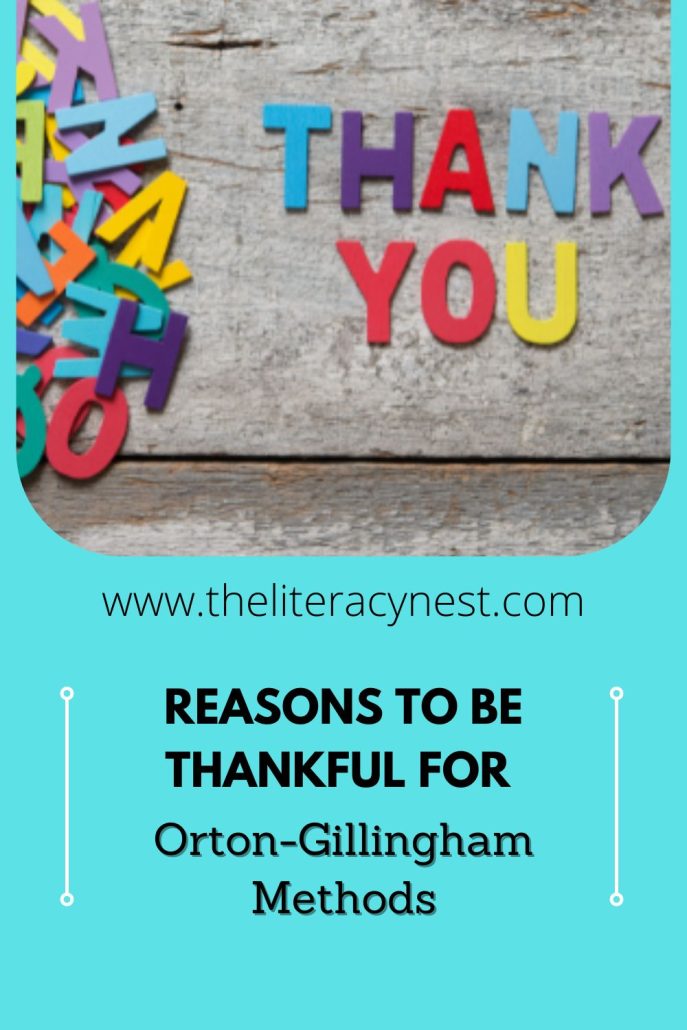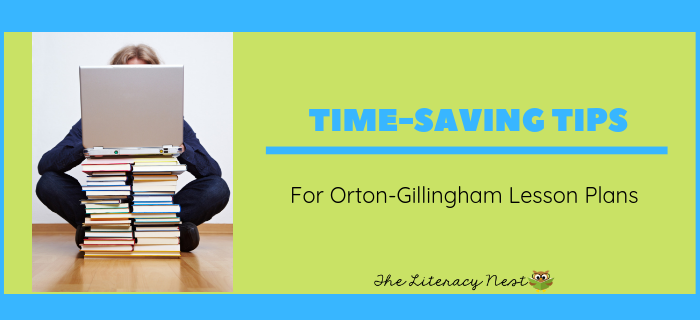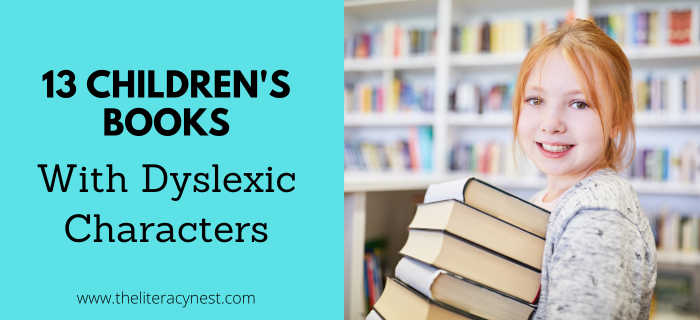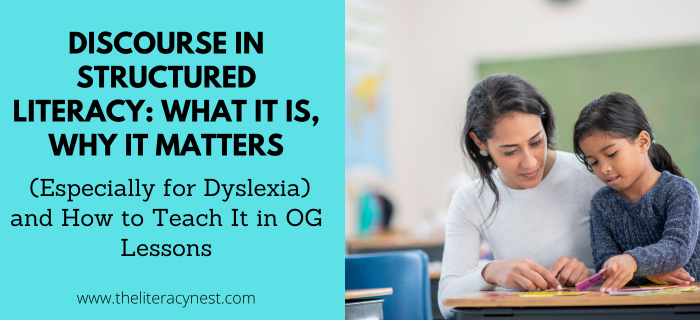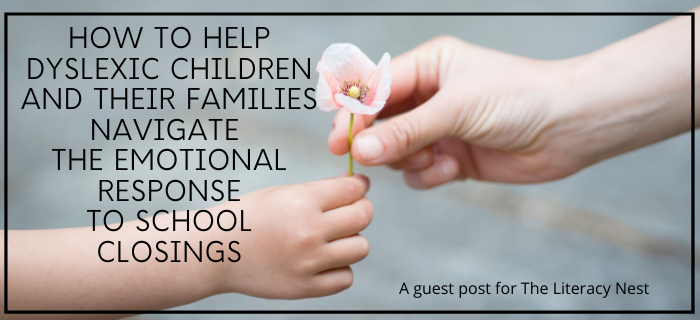Reasons To Be Thankful for Orton-Gillingham Methods
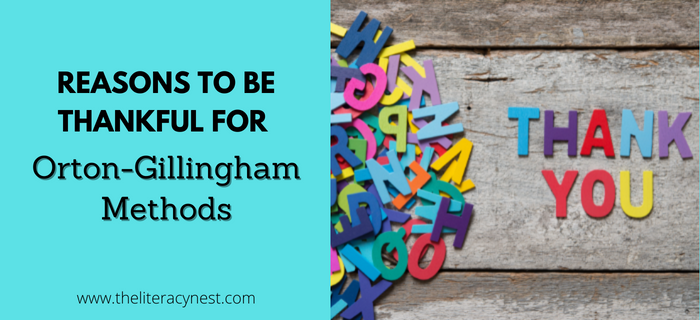
I recently asked my email subscribers to participate in a brief survey. I asked them why they are thankful for Orton-Gillingham Methods. And you certainly did answer!
There were so many wonderful thoughts shared about the ways in which OG has been a powerful influence on so many lives. From being a foundational part of someone’s teaching practice, to very personal ways in which individual lives have been changed, you came through with wonderful moments of gratitude beyond what I had hoped for.
Unfortunately, it isn’t possible to share all the responses, but I’ve selected some of the ones that were most compelling. Perhaps their ideas appeared repeatedly. Or there were some that particularly moved me.
I hope they will inspire you as you think about the ways in which the Orton-Gillingham methods have shaped your experiences.
Thinking that maybe an Orton Gillingham practicum might be right for you? Check out Benefits of An Orton Gillingham Teacher Training Practicum.
Why are you thankful for Orton-Gillingham Methods?
- Students learn better in a systematic, sequential way.
- I am SO incredibly thankful for the multisensory approach OG provides. The potential to engage students in this important learning in a sequential way that SPEAKS to them, and me, is a blessing!
- I am thankful for Structured Literacy (OG) for providing a science-based learning option to help struggling readers close the reading gap and just as importantly….to build confidence!
- OG is an explicit direct way to teach reading.
- Orton Gillingham opened my eyes to the Science of Reading. I finally feel like I can actually teach my students how to become life-long readers!
- I am thankful for Orton-Gillingham because it gives all students, especially struggling readers, the tools to be successful readers and spellers and the self-esteem that comes with that success.
- It has allowed me the opportunity to become a better teacher, more diagnostic and prescriptive, and has impacted my professional and personal life as well.
- I am thankful for Dr. Orton and Ms. Gillingham’s wisdom and compassion in developing an approach that allows teachers to teach in a way such that ALL students with dyslexia CAN learn according to their individual pace and feel successful every time!
- It provides students and teachers with an approach that is direct and explicit systematic phonics instruction and is great for all learners!
- I am thankful for Orton-Gillingham because it gives me the opportunity to tutor a child that “can’t” to a child who “CAN”. My OG skills can mentor that student and help them see positive growth and success in the future. OG has the power to change the whole trajectory of a student’s life if they can read, write, and spell with ease. I want to be that difference in the lives of a whole family.
- It has given me the skills I need to unlock reading for students! It is wonderful to see their eyes light up when they are able to read a word or short passage.
- I’m thankful for Orton-Gillingham because it allows us to see much faster progress! Yay for multisensory instruction!
- Before OG, I knew what my students needed to become readers. I didn’t know how to give them those skills. With OG training, I feel so much more confident as a special education teacher. I love sharing the joy my students feel as their reading skills improve.
- It is helping many non-readers to access text.
- I can hear children read instead of hearing them cry when they can’t! I cannot express enough thanks for knowing what to do now instead of feeling helpless!
- I am thankful for Orton-Gillingham for bringing joy to new readers!
- It is a systematic framework that constantly reviews previously taught material.
- It’s effective, but flexible enough to meet a variety of needs, from whole-class with students generally on grade-level, to students with significant dyslexia. You can have a very structured lesson. Or you can have a day of many games, yet still, meet your objectives and engage students.
- It provides my students with a way to learn that sticks! They are amazed to learn there are rules they can follow in order to read. Instead of sitting at their desks with a bag of books that they have no idea how to attack.
- Since going through my training, I have been more aware of where my students are and what they need.
Want to learn more about how Samual Orton and Anna Gillingham’s work supports social-emotional learning? Check out this episode of the Together in Literacy podcast!
As we hold our gratitude for OG in our hearts I share with you a few last words from so many wonderful email subscribers. This is what it is truly all about.
- Teaching people to read is perhaps the greatest gift we can give.
- It has taken my two dyslexic daughters from being illiterate to being able to read. It’s shifted their belief from “I can’t read” to believing reading is possible.
- It changed my daughter’s life. She started as a first grader who couldn’t read no matter how hard she tried. Now she is a sophomore in college, on the Dean’s List. I see the same transformation in my students’ lives every day.
- It was the answer to helping my daughter learn the sounds of the alphabet and everything thereafter!
- Now that I am trained in OG I am able to help a little boy down the street finally learn how to read.
- The second reason I am thankful is the way it can change a student’s life. I have seen it with younger students who have regained their confidence and flourished in school. As well as with a senior in high school who was just recently diagnosed with dyslexia but is being taught with an Orton-Gillingham approach. It has changed the student’s trajectory for post-high school plans.
- A 47-year-old woman said she felt confident in writing notes to her family and texting her husband. She also took on the job as the scorekeeper for her daughter’s volleyball team.
- As one student recently said, “I think I might be finally learning how to read”. That is what it is all about, and for that I am thankful.
Want to learn more about the Orton Prescription and its connection to social-emotional learning? Check out this episode of the Together in Literacy podcast!
Did you know The Literacy Nest has a video vault where you can get bite-sized tips for O-G lessons? Visit the Literacy Nest Video Vault!
